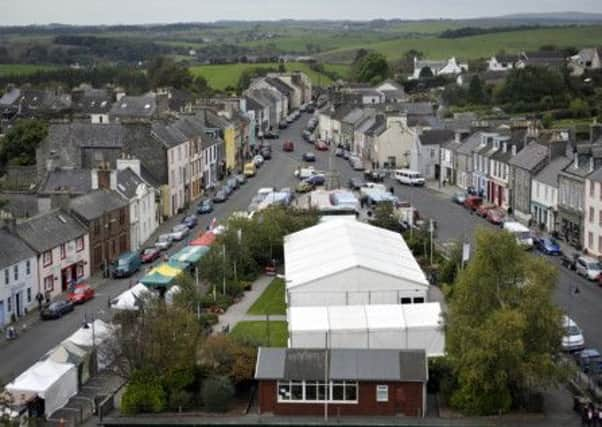Wigtown rapped for independence poem remarks


The Wigtown Book Festival official Twitter feed dared to suggest Morning After perhaps owed more to William MaGonagall than Robert Burns.
The festival was scolded by the novelist Alan Bissett for “slagging off” Scottish writers after giving its verdict on the work published on the independence-supporting National Collective website under the name Nigel Stuart.
Advertisement
Hide AdAdvertisement
Hide AdThe poem looked ahead to next year’s referendum, knitting together poetic gems such as “our freedom’s genes”, “the lies of alien greed” and the “hollow minds of empires lost”.
Online literary critics ridiculed the work of Stuart, who was described by National Collective as “a poet, who also writes under his own name as a modern historian”.
On Twitter, journalist Euan McColm said Stuart’s poetry was “an Athena poster of a battle re-enactment enthusiast eating shortbread in a thunderstorm”.
But it was when the Wigtown Book Festival tweeted: “Wow, this poem really is as bad as it has been cracked up to be” that the reaction went nuclear.
Mr Bissett, a prominent independence supporter, tweeted that “a Scottish poet being officially jeered by a Scottish book festival is, to me, a highly objectionable sight”.
Another Twitter-user suggested the tweet should be deleted before “a right big mad stooshie kicks off”.
In another tweet, Mr Bissett said he had not expected the official Twitter account for the festival to “go in for slagging off Scottish writers”.
Advertisement
Hide AdAdvertisement
Hide AdThe festival deleted the tweet, but wondered if it “confused things” for Mr Bissett to bring in the poet’s nationality when the comments related to the quality of the work. Mr Bissett replied that Scots book festivals had a particular responsibility to Scottish writers.
Last night, festival director Adrian Turpin said: “The initial tweet was in reaction to a poem that had been widely discussed and parodied by people of varying political positions: its poetics, rather than its politics, was a talking point.
“For good or ill, we chose to add our tuppence-worth, linking to the poem itself for people to make their own mind up.
“Some Twitter users raised questions about whether it was appropriate for a festival to pass judgment on a writer’s work in this manner. We acknowledged those criticisms and deleted the tweet. For us, the issue was one of civility, not nationality or politics.
“If the poem had been written by someone of a different political viewpoint or from a different nation, the issues would have been the same – a point that was discussed frankly but cordially with Alan.
“Our position is that while it may be inappropriate to be critical, it cannot be right to tailor that criticism according tonationality.”
Morning After
Who knows not fear may never make a man,
that’s where our resolution was begun;
so scattered scares just made each sleek someone
to cower less and find, as in a clan,
that dignity which scorns all mean, hired means,
no matter how empowered, shrill or sly,
to film with craven cataract our eye,
or filch the courage from our freedom’s genes.
September’s dawn will come and we will say,
“They brought us bogles and the shards of shame,
the lies of alien greed and now with hollow
minds of empires lost, they have to yield our day.”
Oh with our freedom,
let’s not be the same -
for all Scots, brave or feart, face one morrow.
SEE ALSO: